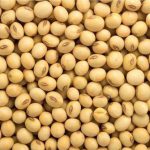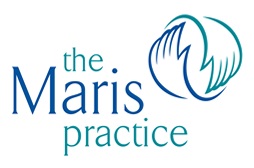The number of vegans in the UK has risen dramatically, quadrupling* in the last 5 years and many others are adopting a largely meat-free diet. This sudden growth hasn’t come out of nowhere and is part of a steady progression towards a less animal-reliant regime.
The transition to becoming a vegan can be challenging, and we often feel very restricted when we stop the consumption of meat, dairy, and eggs. We tend to fall back on the foods that we know and find convenient. BUT unfortunately, you can be vegan and still have a very poor diet.
Your diet ideally should consist of mostly whole plant-based foods which include vegetables, legumes & beans, nuts, seeds, fruits, superfoods, healthy fats, grains and fermented foods. This is what vegans try to eat 85% of the time but with the rise of junk food options in our supermarkets, cafes and fast food chains, it is becoming harder for vegans to embrace a whole foods diet.
A lot of vegan convenience foods aren’t necessarily bad for you, they simply lack nutritional value. Meat replacements often contain soya, which is fine in moderation. Soya beans are incredibly versatile and they have become a staple in the diets of vegans: for example, soya milk, tofu, flour and meat-free burgers and sausages.
Soya contains phytoestrogens, which, if eaten too frequently, can alter a person’s hormone balance. It’s not uncommon to see rehydrated and textured soya in vegan meals either. The texture is altered to make the food more palatable and extend its shelf life, but these processing stages will lower its nutrient content.
Also, the mass production of soya comes into question when linked to the deforestation in South America and the effect of methods used when growing huge amounts of monoculture (pesticides, transport). The US and Brazil, together produce about 64% of the world’s supply of soya and there have long been serious concerns about the link to deforestation in the Amazon and surrounding regions which decimates wildlife. The extensive use of pesticides and amount of food miles (using fossil fuels, packaging etc etc) associated do not align with the vegan or vegetarian mindset of not harming animals.
Another consideration is that vegan ‘fake meat’ produce is normally loaded with artificial ingredients, preservatives, processed oils and nutritionally empty ingredients. Some veggie burgers contain more calories than beef burgers and with far less protein.
If you’re really craving a veggie burger, read the ingredients label before you buy. Look for those that list beans or legumes, not soy protein isolate or wheat gluten, as the first ingredient. That way you know you are getting more whole foods from your burger. All ingredients are listed on the packet in order of quantity, so if sugar is at the top, it is not the healthiest choice!
If you’re buying barbecue jackfruit for example — a popular vegan pork replacement — you want jackfruit to be the first food listed, not sweeteners and salts. The issue here is that jackfruit is rich in fibre, vitamins and protein, but it’s frequently coated in sugary sauces that diminish the fruit’s natural vitamins.
What we all have to remember is that at the end of the day, whether you consume animal products or not, you would be wise to consider whether what you are eating is nutritionally beneficial and sustainably sourced.
* https://www.vegansociety.com/news/media/statistics
** – about 6% of soya is eaten directly by humans with most of the remainder being used for animal feed

